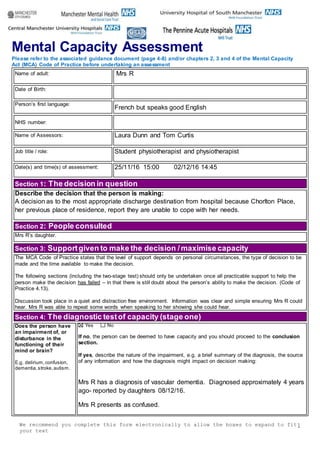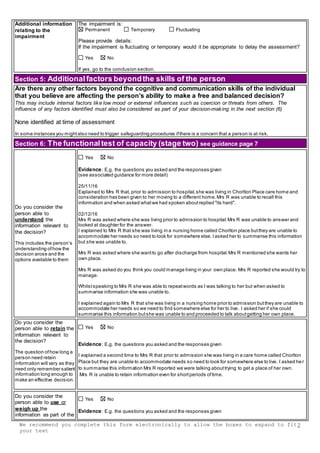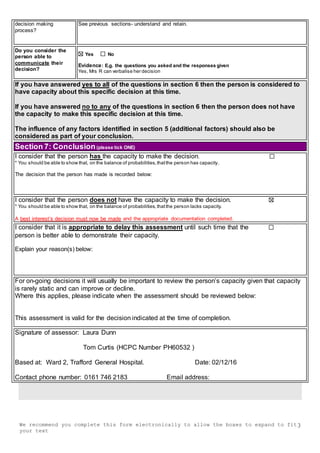Mrs. R, who has a diagnosis of vascular dementia, was being assessed to determine if she had the mental capacity to make a decision about her discharge destination from the hospital. Over two assessments, Mrs. R was unable to understand, retain, or use the information provided about her previous living situation and discharge options. Specifically, she could not recall or summarize where she had lived before or the reason for needing a new location. As a result, the assessors determined that Mrs. R did not have the mental capacity to make a decision about her discharge.


